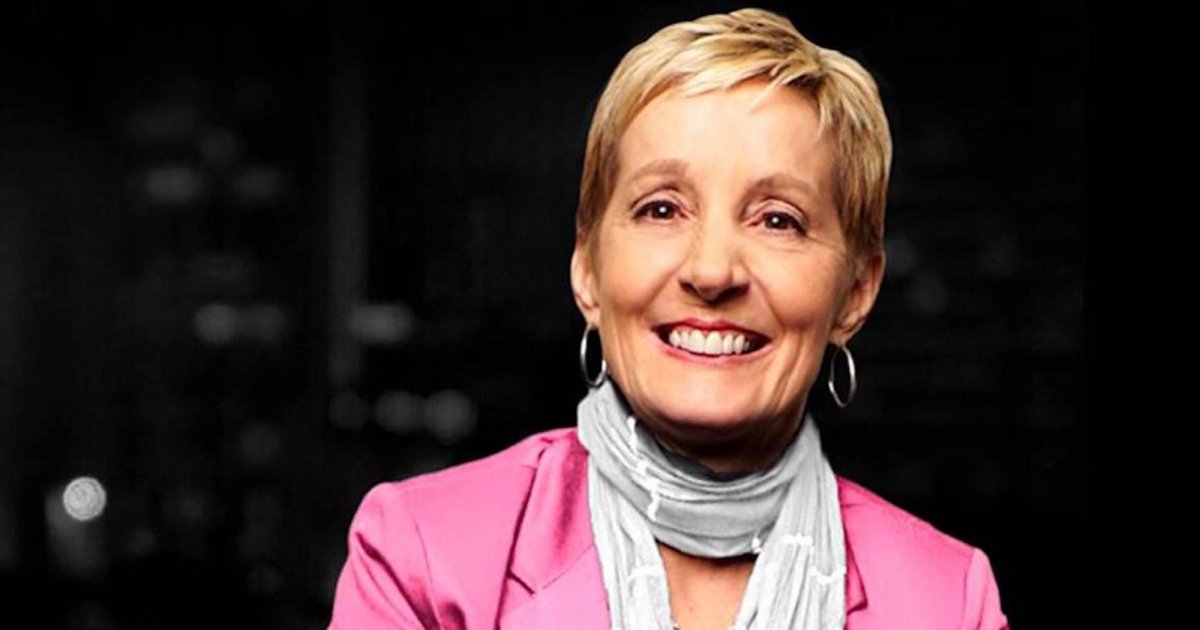Comedian Karen Mills realized “chemo-brain is real,” when she pulled into the drive-through lane at the SunTrust bank and told the teller, “I’m here to pick up my prescription.”
A favorite on Sirius XM comedy channels, Mills has competed on ‘America’s Got Talent’ and tours the country doing standup. When she received an ovarian cancer diagnosis at age 54, she looked for the humor and began sharing her cancer stories on stage.
Read More“Cancer Has Taught Me So Much”
Fortunately, her cancer hadn’t spread and Mills, who is now 60, was treated successfully. “Cancer has taught me so much” she muses in her TedxChattanooga talk, which has racked up nearly 180,000 views on YouTube,”…like, never order a wig on the internet.”While Mills’ audiences are laughing, they’re also getting a potentially life-saving message about ovarian cancer, a disease for which there is no effective screening test. Because women often brush off the early warning signs–bloating, stomach cramps, and expanding waistline are just a few of them–ovarian cancer can go undetected until it reaches advanced stages and is more deadly.
Don’t Ignore These Ovarian Cancer Symptoms
“Looking back, I did have symptoms,” Mills told SurvivorNet in a recent interview. “I was tired, bloated, and I constantly had to go to the bathroom. It always felt like I could never empty my bladder. And, of course, that describes every menopausal woman I know.”
Says Mills, “That’s what’s so difficult about detecting ovarian cancer, the symptoms mask themselves as other issues.”
“Because of You, I Got Checked and Caught It Early”
As she tours the country doing comedy, it’s safe to say that Mills has saved a few women’s lives along the way: “I get emails and messages all the time from women who say: ‘Because of you, I got checked and they caught it [ovarian cancer] early,” she says, gratified at the response. Recently, she shared her message with 3000 women at the Central California Women’s Conference. “Deepak Chopra’s daughter, Mallika, spoke in the morning, Maria Shriver spoke at lunch, and I was the closing keynote.”
RELATED: Ovarian Cancer: The Cancer That Whispers
She hopes her story will empower women in her audiences to “investigate something that doesn’t feel quite right. The weight gain, the bloating…I thought that was all part of menopause and middle age.”
A Valuable Resource For Ovarian Cancer Patients
Karen isn’t the only survivor working to improve access to information about ovarian cancer. When Doug Wendt's wife, Alice, was diagnosed with ovarian cancer they found that there was a serious lack of resources available for them. “The ovarian cancer experience varies greatly from woman to woman,” Doug says in the video below, “but a lot of the information out there about the disease is not exactly helpful to the average person.”
Doug Wendt was a caregiver for his wife, Alice, who battled ovarian cancer for two years. They discovered The Clearity Foundation, which provided valuable answers about the genetic makeup of her disease and helped the couple make important decisions about her treatment.
Doug told SurvivorNet, "Alice had lived with gynecological pain for almost the entirety of our marriage and never addressed it, just because women don't see the symptoms coming.” He advocates for physician-awareness, too, “A lot of women who go to their doctor are told, it's just what it means to be a woman.”
RELATED: Ovarian Cancer: Genetic Testing
Doug went on to stress that this way of thinking can be dangerous. In Alice's honor, Doug created the Cardinal Cancer Foundation, with the mission of empowering women to take control of their health and to report and question symptoms when they have them. Doug said the outcome for his wife, who battled the disease for two years, may have been different if her symptoms had been looked into earlier.
RELATED: Dealing With Ovarian Cancer Recurrence
With ovarian cancer, your doctor may recommend a clinical trial when chemotherapy isn't working well, says Dr. Casey Cosgrove, a gynecologic oncologist at Ohio State University. “Women should consider enrolling in a clinical trial if they have experienced an ovarian cancer recurrence,” he explains.
Dr. Casey Cosgrove, a gynecological oncologist at The James, The Ohio State University Comprehensive Cancer Center, discusses treatment options for patients with recurrent ovarian cancer.
Clinical Trials Are Providing New And Exciting Information
When it comes to ovarian cancer in particular, new information that has come out of recent clinical trials has been really exciting and researchers are even beginning to wonder if the disease, even in advanced stages, may be curable.
Each clinical trial is completed in three or four phases, all separate from each other. Within each phase, the researcher that is working on the trial is able to do question-and-answer research with the patients undergoing the treatment that can give the researchers valuable and reliable information on the trial and protects the patient. This helps determine ways to better treat ovarian cancer.
Many female patients with ovarian cancer, according to the National Ovarian Cancer Coalition, do choose to participate in clinical trials. As a result of their participation, they may be able to take part in a treatment option that would not have been available within the clinically approved treatments when something in a trial could be potentially life-saving.
Learn more about SurvivorNet's rigorous medical review process.


